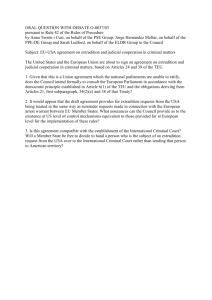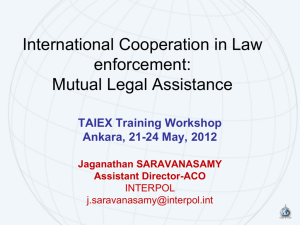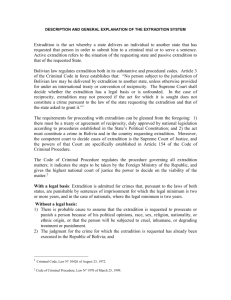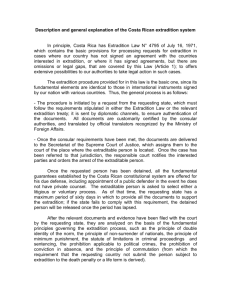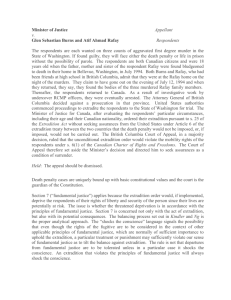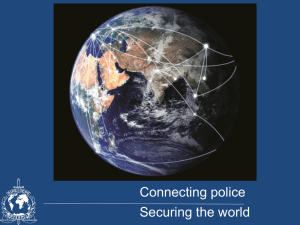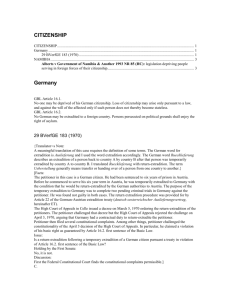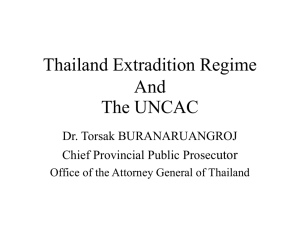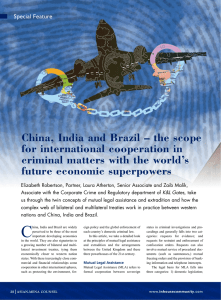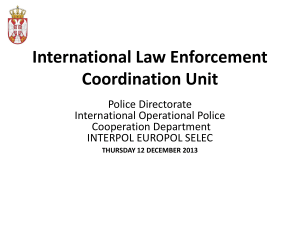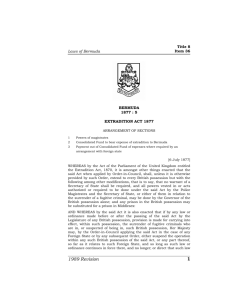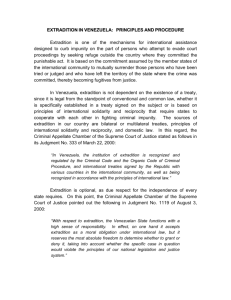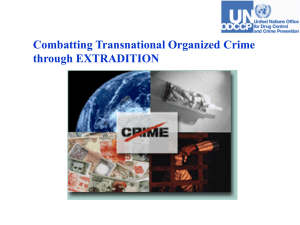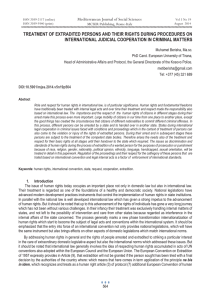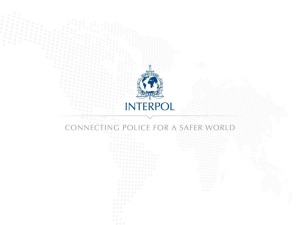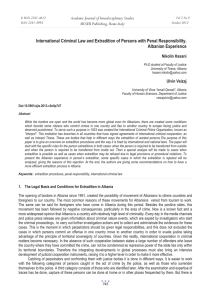Overview of CBI - Press Information Bureau
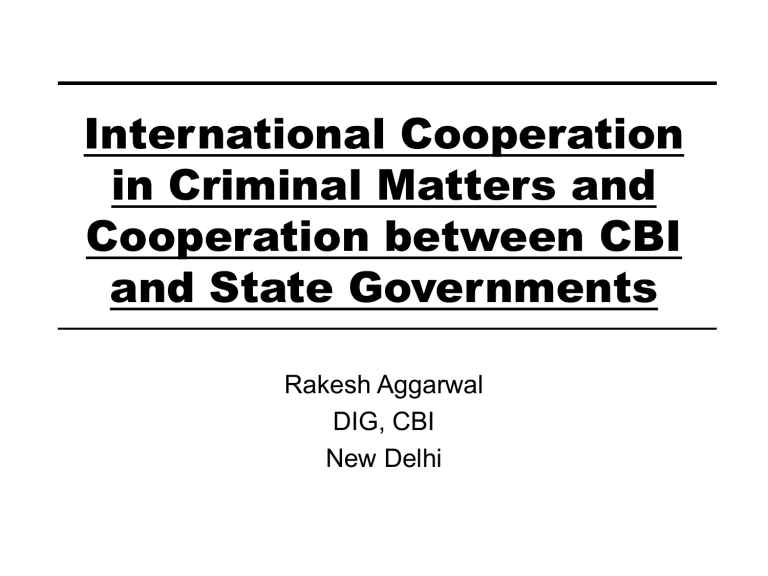
International Cooperation in Criminal Matters and
Cooperation between CBI and State Governments
Rakesh Aggarwal
DIG, CBI
New Delhi
Why International Cooperation
• World is becoming a Global village
– Faster mobility
– Integration of economies
– Wire transfers
– International tourists
• Global tenders
• Immigrant population
• International gangs, terrorism, etc.
Principles of International
Cooperation
• Sovereignty
• Supremacy of domestic laws
• Dual criminality
• Ordinary criminal law
• Legal arrangements, reciprocity
• Respect for Human Rights
• Restrictions against capital punishment
Types of
International
Cooperation
INTERPOL
Enquiries, Look Out
Notices, RCNs
(Non-evidentiary)
BILATERAL
Formal Investigation
Through Letters
Rogatory
EXTRADITION
Extradition Request through MEA
INTERPOL
• Largest International association of Police Organizations
• 187 member countries, each represented by a National
Central Bureau (NCB), Head Quarter at Lyon, France
• No police powers, IT IS NOT A POLICE
• NCB-India is part of CBI, Director CBI is head of NCB-
India. NCBs are single points of contacts for a country
• All NCBs connected on 24X7 basis through a secure channel, all enquiries sent through this channel
INTERPOL (CONTD.)
• NCB-India coordinates with State Police through Interpol liaison Officers (generally ADG/IG Crime of State police)
• All requests executed as per domestic law of the requested country and on basis of voluntary cooperation
• Requests have to be based on ordinary criminal law and should not be political
• Interpol has various databases, the most important being that of Red Notices
Red Notice (RCN)
• Red Notice is a Look Out Notice to member countries of the Interpol that a person is wanted for a Crime
• Conditions:
– Request can be made only by NCB-India
– Person should be wanted for an ordinary serious crime
(extraditable offence)
– The offence should not be of political, racial or military nature
– An open-dated arrest warrant
– Identity particulars
• Arresting a person after he is located is not mandatory in all countries; executed as per domestic law
Investigations Abroad
• Legal framework:
– Section 166 A CrPC for outgoing requests
– Section 166 B CrPC for incoming requests
• India has Mutual Legal Assistance Treaties (MLAT) with a number of countries
• In absence of MLAT, assurance of reciprocity forms the basis for cooperation
• MHA is the nodal authority; CBI is coordinating authority for incoming requests
• Letters Rogatory (Letter of request) is issued by Judicial magistrate to the competent authority in requested state
Investigations Abroad- Contd.
• Letters Rogatary are executed for only ordinary crimes on principles of sovereignty and dual criminality and supremacy of domestic laws
• What evidence is to gathered has to be specified
• Police officers of one country do not have any police powers in another country
• Police officers of requesting country can visit the requested country for assistance only, subject to approval of requested country
• Problems: Delays, examination of witnesses during trial
(video conferencing)
Extradition
• Extradition means transfer of an offender from one country to another
• Legal Framework: Indian Extradition Act, 1962 and
Extradition Treaties
• Ministry of External Affairs is the nodal ministry
• Extradition possible, even without an Extradition Treaty on the basis of Assurance of Reciprocity
• Before an Extradition Request can be sent, the person has to be located (through RCN or otherwise)
Extradition- (Contd.)
• Extradition Request has to be issued by the competent court. It contains the allegations against the accused and the evidence which supports such allegations
• Generally extradition is for the purpose of trial and not for investigation, i.e. charge-sheet should have been submitted in court
• Own nationals are generally not extradited, they are tried by the native country by importing evidence
• Law of specificity: A person can be tried for only the offence for which he has been extradited
• Problems: A mini trial in requested country, delays
Cooperation between CBI and
States
• NCB-India for enquiries, investigations
• Formal and informal channels for searches, arrest warrants, apprehension of proclaimed offenders, security
• Annual conferences: Anti-corruption conference, Interpol
Liaison Officers’ Conference
• CBI is nodal agency for database on missing children,
FICN, human trafficking
• Knowledge management in transferred investigations
